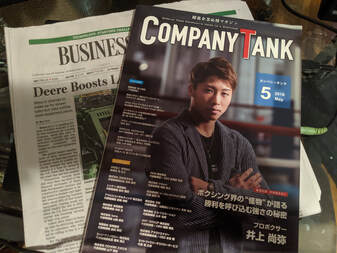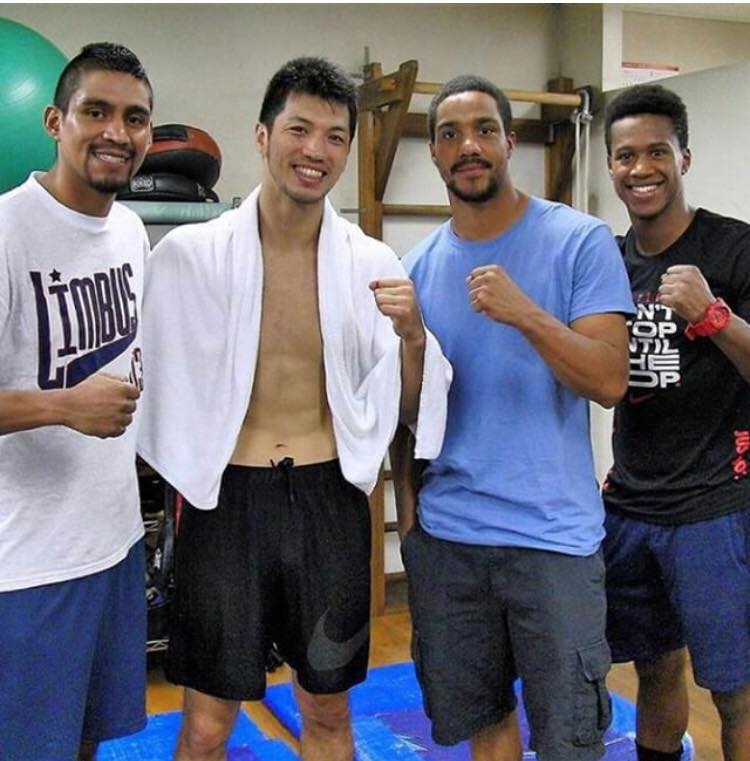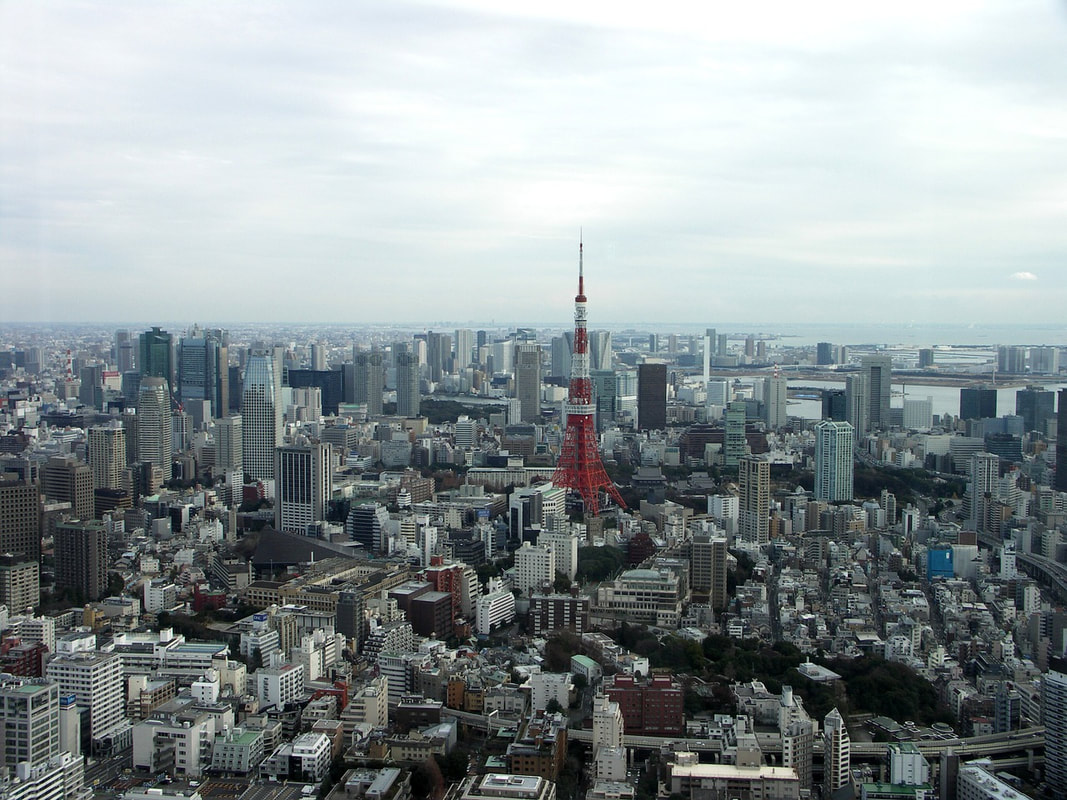|
I never want to hear after the death of a fighter that such sacrifice is what makes the endeavor incomprehensible to non-boxer commentators. That those who've never entered the ring can't properly contextualize and understand what goes down within. Not just because if you study enough tape of anything, you can begin to see how it works on a mechanical level -- or 'cause if you spend enough time among other humans, their loves and losses become your own. Not just because trauma is merely an epicenter -- its outer rings also subject to seismic tumult, even if it's somehow delayed or mediated by distance. Not just because far too many non-fighters risk everything daily by profession. Or because every grouping of people worldwide is involved in combat -- intramural if not inter. Conducted by air if not by sea or ground. By drone joystick if not by fist or kick. We are pitiful beasts -- compelled by primal biology to propagate the species, convinced by causes legitimate and lawless, innate and invented, propagation is a zero-sum game. We are all enrolled without consent in the hunger games. (And those are the ones among us with a measure of control; those with broken brains and bodies, imprisoned or enslaved by peer or pain, whose aim isn't to conquer but just to survive, we're fucking out here, too.) But that's not the main reason I bristle at the notion of fighters being analysts apart by virtue of their possible fatality. And neither is it because it disqualifies me as a boxing writer -- or my many spectator-scribe superiors, whose thoughtful work has artistic value no matter its subject matter. And on that point: Will some British publisher please revive the corpus of sports reporter Denzil Batchelor? He was born in Bombay, attended Oxford, died in the summer of '69 -- 50 years ago -- and unless I'm mistaken, no one has said a word about him ever since or on this anniversary occasion; I myself have seen his boxing writing only in two musty library books -- one borrowed, the other bought for a couple dollars on eBay after it was taken out of circulation, which, like the absence of the Ancient Greeks in the Dark Ages, is civilization's loss. That forgetting of a person's words -- that's a writer's second death. And its tragedy isn't that the deceased feels any pain -- it's that the living doesn't know it should. And that's the crux of this moment, October 2019, in a week following a nationally-televised death-by-knockout of a smiley 27-year-old from Long Island. Let's be ruthlessly adult here. Patrick Day was out cold from the punch and probably did not feel the canvas collision that proved his end. That doesn't mean any part of the process was merciful -- mercy is a concept too lofty for me to understand or invoke in this context. I've no notions of when a soul comes and when it goes. But it does mean we are all witness now to the second death -- not what befell a kid but what a world looks like without his presence. There's nothing unusual in that -- eulogies and obits pull anecdotes from the deceased's life precisely to fill in, however temporarily, that gap. The sincere ones, anyway (not the the ones whose schmaltz was made to order years earlier, by editors, in the event Politician A should go). Or maybe I'm just a romantic loser who cries at the end "The Pillowman" because -- spoiler alert -- for odd and inexplicable reasons, though they eliminate the writer, one man ultimately decides not to do the same to his work (that is the best play ever written, not incidentally, and if its last moment should ever not make me cry, please mourn the loss of my own identity -- long after boxing and film and memories of love leave this ever-more-fragmented brain, a simple joy in the survival of the word will remain -- being so essential to me now, it had better). __________________ I sent an email to Lou DiBella, the promoter of Patrick Day, and a man whose anguish I would fractionally take on, urging others to do the same, if grief and undue feelings of guilt could be so cleanly divvied and managed via sharing, at 5:41 am on May 11, 2017. It was a simple request: Patrick Day had just served as middleweight Ryota Murata's sparring partner in Japan, I was profiling Murata, a 2012 Olympic Gold Medalist, so I wanted to interview Day about his experience. I about to take off to Tokyo myself. Lou didn't get back to me that morning, so far as I can tell from my inbox (I'm no good at digital forensics, I could be missing it). So I wound up interviewing the other NY kid sent to Tokyo to give Murata work -- Steve Martinez of The Bronx -- and originally, Puerto Rico -- who only a year earlier had lost a controversial majority decision to former US Olympian (and PBC player) Terrell Gausha. I spoke to Steve Martinez on the phone for 33 minutes. Martinez was a super-welterweight, like Day, and I found it intriguing from the jump that Murata's handlers were spoon-feeding him smaller guys in prep for a middleweight secondary-title bout (yes, boxers often spar opponents of varying sizes, but keep in mind that Teiken Promotions had to fly out and then house this pair of 154-pounders for three and a half weeks, in a country sorely lacking in opposition at 160; wouldn't you want at least one true middleweight in that circumstance?). "Once they sprung Japan up and Murata, I had to jump on it," Martinez told me of the offer. "I had never been outside the United States or the Caribbean...Once they said, You're sparring with a gold medalist, I said, Yeah, I definitely gotta get this. This is a big experience as a tourist and as a boxer." "I'm about to go," I said. "This your first time?" he said. "Yeah." He giggled. "You're gonna love it, man." He told me Tokyo was so clean, people were so respectful, so kind. Akihiko Honda, the famed head of Teiken Promotions, had paid for Steve and Patrick to go on a 10-hour site-seeing bus tour one Sunday during their stay. "It was just amazing," Martinez told me. He compared Shibuya to Times Square. He gave me advice on how to use the subway ("use Google Maps" -- best tip I received the whole trip). "And I do not recommend you use cabs -- out there, they expensive, man. They come up quick." There's nothing so reassuring as being briefed by someone who recognizes your unspoken NY tendency and addresses it straight on. The subway stops running after 12:30 am, and don't be caught thinking you can just hail a cab. I asked him what he liked best on that long-ass bus tour. The Buddhist temples, the Shinto Shrines, the religion, philosophy. Martinez told me that people who could speak English would stop him (presumably Pat, too) having seen his photo in newspaper and Web site shots of Murata training. "You're Murata's sparring partner!" One shop let Martinez take a free drink everyday (I hope it was Pocari Sweat, Japan's answer to Gatorade, but I didn't ask at the time). Martinez told me about the small shops he liked to eat in not far from the Teiken Gym, about a boat Honda arranged for him and Pat to take, in Tokyo Bay, from which they could see the Tokyo Tower, the Skytree, the whole glittering arrangement.  It's odd, uncanny that I'm going back to Japan now. But maybe the timing is also kinda...right? I leave in two weeks. The original plan, which remains in place, so far as this freelancer's Vice editor knows, was to profile Naoya Inoue, the bantamweight sensation with bricks for hands and handsome bangs. And my gosh, I have more material than anyone will ever publish. Lately, I've been reading his views pertaining to business, as you can see from the adjacent photo of May's "CompanyTank" magazine. And there's a lot more where that came from (for all the sarcasm, it's genuinely comforting to see a culture value print publications still). I've been brushing up my rusty, 下手 Japanese. Been watching a soapy workplace comedy crudely called "Pretty Proofreader" on English apps (it's actually about a damn smart copy editor at a publishing house who aspires to be a kind of Anna Wintour, and I love it). Even before this past week, I was unsure I'd follow through and go. The arrangements were made, the tickets bought. But my health dogging me, I've kinda adopted a policy of deciding on absolutely nothing until the final moment. Freelance writing pays shit, I never meant to be pigeonholed as a boxing guy to begin with, and on top of all of that, it sometimes -- nearly always lately -- feels like a dude's drilling into my cranium with a Black and Decker. The only thing "BREAKING" on my Twitter account -- much love, Copp -- is me. And that's why I dislike the idea that in moments of tremendous loss, only boxers can understand what has transpired. The unforgiving gig. Not because my brain might be as fucked. But because these decisions about how to cover a tragedy, how to continue a career, which ramen shops to visit in Tokyo -- they are things we all of us share. There are poorer and richer boxers, dumber and smarter ones. There are New Yorkers I understand and some I never will. And yeah, this industry is filled with incredible evil. Sources of money who don't leave their lodgings for fear of extradition to any one of the several European countries where Europol so badly wants to bag their asses. In light of that, I can see why I might distance myself intellectually from onlookers were positions reversed. So here's the common ground -- and I say this based on personal experience alone. If Boxing Junkie 2.0 or Rafael 1.0 or The Athletic Triumvirate wants to differ, fine: Everyone in this game is 100 percent in and also touch-and-go day-to-day. Boxers are dedicated as fuck -- and then the fight ends and the people disperse and they wonder how they're gonna put themselves through hell the next time. Promoters make deals they feel compromise them -- a bit financially, a bit intellectually, a bit spiritually. Target one at a bar, buy a few and listen. Also, first make sure they're not recording you. And yet, once the paper is signed they will do every damn thing to make the deal work (especially after Canelo announces you're really not working as hard on advancing me as you should be -- especialmente en este caso). I dunno why Errol Spence was in that Ferrari -- but I can tell you his mindset was entirely different in that moment than it was for any of the 48 minutes of the Porter fight. I'm not saying anyone in boxing is tougher or more determined or deserves more than the boxers themselves. I am saying this game is so totally fucked in all its demands, of every person, that if you really look around, you're likely gonna see someone working at life same as you are. With 100 percent commitment one moment and serious questions about whether he or she should continue down a certain path the next. And if that's not true, I'd love to know how my trips to Japan compare to Thurman's during his long, mystical break. Or what Ward and Mikey were up to during their holdouts. And do you think this week is the first time I've heard a grown man cry about the direction of his boxing life? It would be nice or awful to think so, depending on your perspective, I guess. And for those of who have smirked and snickered at Lampley's tears, please keep the snark in abeyance for a moment. The first time I saw a boxing man stand right before me and cry: It was in the back of a Peltz event when I was in college. I was talking to Dick Turner, a '60s welterweight of some repute who seemed alternately present before me and caught up in some troubling memory I couldn't decipher. He mumbled that these girls, they ran over his brother. And he repeated it. Now, his brother was also a fighter once upon a time -- Royal Turner. Won some amateur tournaments, has a 1-0 pro record on Boxrec, but there may be more to it. He and Dick were uncles to well-known '80s TV fighters Frank and Anthony Fletcher. I remember this glossy-eyed man, tearing up some, looking at me, and I didn't know what he was seeing. Keep in mind that we're literally at the fights -- there are two dudes in the ring swinging this entire time. It wasn't until many years later that I finally found the news clipping -- it was 20 years ago exactly this October. A 15-year-old girl, with two friends of a similar age, were joyriding in an old Chrysler LeBaron in Southwest Philly. They struck Royal Turner on the 1400 block of South Hanson Street and then drove off. Turner died at 65 at the Hospital of the University of Pennsylvania -- on the campus where I went to school and at the hospital he himself worked at until retirement. Yeah, his brother recalling that sequence: I think that's the first time I saw a grown man cry in boxing, and to this day my greatest regret, aside from being a small fraction of the writer I should be, is not figuring out some fucking way to bridge these ridiculous world-bubbles separating us, these fucking evil Epcots. Royal Turner worked at the hospital near my classes. He died in the place where he had worked for decades. His brother was known in Philly, his nephews were relatively famous fighters. Why couldn't this somehow all cohere and work? Why did it always have to fall apart? No, I have no fucking clue what to do in the wake of the death of Patrick Day or Maxim Dadashev. I would like to know what Day thought of Japan. And whether he honestly thought what I did two years ago -- Murata needs a left hook. I wanna tell Lou it's okay, and I will and I have. Mostly I just wanna tell the boxing public -- it'd be great if a fighter read this, but anybody -- this sport might not be worth preservation -- not as a business, not as a martial art, not as entertainment. But if we're gonna keep it up and running, if only barely for now, can we please tear down these fucking walls? I understand the business models that enabled and maybe required their creation. But I can't see or hear people through them, and Twitter is no substitute for actual interaction -- for conversation. There's no shame in crying. But it's to our tremendous discredit that we do it alone. |
|


